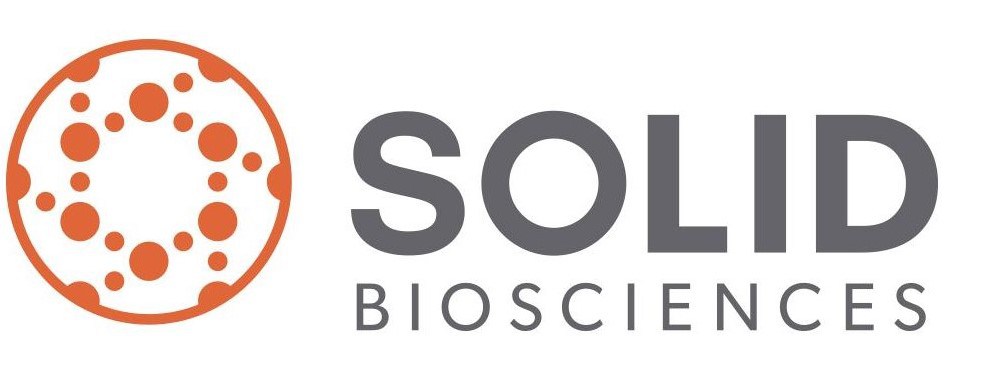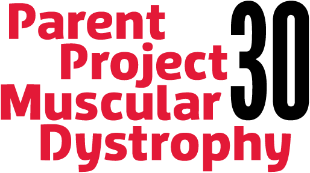
Solid Biosciences Inc. today shared on a updated on the IGNITE DMD clinical trial, noting the dosing of two additional patients with SGT-001 gene transfer and the company’s plan to report preliminary results from IGNITE DMD in the first quarter of 2019.
Read the update from Solid:
Solid Biosciences Reports Third Quarter 2018 Financial Results And Provides Business Update
- Two Additional Patients Dosed With SGT-001 Gene Transfer in IGNITE DMD Clinical Trial
- Company Plans to Report Preliminary Results from IGNITE DMD in the First Quarter of 2019
CAMBRIDGE, Mass., Nov. 13, 2018 (GLOBE NEWSWIRE) — Solid Biosciences Inc. (NASDAQ: SLDB) today reported financial results for the third quarter ended September 30, 2018 and provided a business update.
“We are pleased to have made significant progress toward our goal of bringing meaningful treatments to patients with Duchenne muscular dystrophy,” said Ilan Ganot, Chief Executive Officer, Co-Founder and President of Solid Biosciences. “Most notably, we resumed dosing in the Phase I/II IGNITE DMD clinical trial for our SGT-001 microdystrophin gene therapy program. This progress was complemented by continued work on our innovative and scalable manufacturing process, which enabled us to move forward with the study as planned and without delay. We believe that the unique attributes included in SGT-001 could translate to significant benefit for patients and now look forward to providing preliminary biopsy data from IGNITE DMD in the first quarter of 2019. We also remain on track to provide data from our previously communicated interim analysis in the second half of 2019.”
“We are pleased with the progress we have made on IGNITE DMD, dosing two additional patients with SGT-001 since the study resumed,” said Jorge Quiroz, M.D., Chief Medical Officer of Solid Biosciences. “Six patients have now been randomized in IGNITE DMD, three to the active treatment group, all of whom are doing well, and three to the delayed treatment control group. Continuing to enroll IGNITE DMD is a top priority, and we look forward to understanding the potential of SGT-001 in the clinic. As always, we remain grateful to the patients and families participating in IGNITE DMD and the team at the University of Florida.”
Recent Developments
- Solid is continuing to enroll IGNITE DMD, the Company’s randomized, controlled Phase I/II clinical trial to assess the safety and efficacy of SGT-001 (AAV-mediated microdystrophin gene transfer) for the treatment of Duchenne muscular dystrophy (DMD). In total, six patients have been randomized in IGNITE DMD, three to the active treatment group and three to the delayed treatment control group. This number includes two additional patients who have been dosed since the study resumed in June. All three patients who have received SGT-001 are currently doing well.There were no serious adverse events observed in the second or third patients dosed. Laboratory findings, including a transient decline in platelet count that has fully resolved, were quickly identified and managed per the study protocol. Solid continues to enroll patients in IGNITE DMD and plans to communicate preliminary results, including microdystrophin expression data, in the first quarter of 2019.
- In September, Solid announced that the Company appointed clinical and gene therapy expert Sukumar Nagendran, M.D., to its Board of Directors. Dr. Nagendran brings to Solid more than 30 years of experience in key functional areas, including gene therapy development, clinical strategy, medical affairs and diagnostics. Most recently, Dr. Nagendran was Chief Medical Officer & Senior Vice President of AveXis Inc., where he was responsible for overseeing and driving all clinical development and medical affairs strategy, notably for the company’s late-stage AAV-mediated gene therapy program for Spinal Muscular Atrophy (SMA).
- In October, Solid received Fast Track Designation for SGT-001 from the U.S. Food and Drug Administration (FDA). The Fast Track program is designed to expedite the development and review of drugs to treat serious or life-threatening conditions and fill an unmet medical need.
Financial Highlights
Solid Biosciences reported a net loss of $19.0 million for the third quarter of 2018 as compared to $13.5 million for the third quarter of 2017. The net loss was due to research and development expenses, as well as investments in the Company’s infrastructure.Research and development expenses for the third quarter of 2018 were $14.7 million as compared to $10.6 million for the prior year period. This increase was primarily due to personnel and facility related expenses and costs related to clinical development and manufacturing activities for SGT-001, as well as our other product candidates. These increases were offset by a reduction in preclinical costs associated with SGT-001.
General and administrative expenses were $4.5 million for the third quarter of 2018 as compared to $3.1 million for the prior year period. This increase was primarily due to personnel and facility related costs, as well as other corporate expenses.
Solid ended the third quarter of 2018 with $145.4 million in cash, cash equivalents and available-for-sale securities as compared to $69.1 million as of December 31, 2017. The increase was primarily the result of the completion of the Company’s initial public offering on January 30, 2018.
About SGT-001
Solid’s lead candidate, SGT-001, is a novel adeno-associated viral (AAV) vector-mediated gene transfer under investigation for its ability to address the underlying genetic cause of Duchenne muscular dystrophy (DMD), mutations in the dystrophin gene that result in the absence or near-absence of dystrophin protein. SGT-001 is a systemically administered candidate that delivers a synthetic dystrophin transgene, called microdystrophin, to the body. This microdystrophin encodes for a functional protein surrogate that is expressed in muscles and stabilizes essential associated proteins, including neuronal nitric oxide synthase (nNOS). SGT-001 utilizes AAV9, which has an affinity for muscle and is currently being evaluated in multiple clinical programs in other indications. Data from Solid’s preclinical program suggest that SGT-001 has the potential to slow or stop the progression of DMD, regardless of genetic mutation or disease stage.SGT-001 is based on pioneering research in dystrophin biology by Dr. Jeffrey Chamberlain of the University of Washington and Dr. Dongsheng Duan of the University of Missouri. SGT-001 has been granted Rare Pediatric Disease Designation, or RPDD, and Fast Track Designation in the United States and Orphan Drug Designations in both the United States and European Union.



 by: Parent Project Muscular Dystrophy
by: Parent Project Muscular Dystrophy

